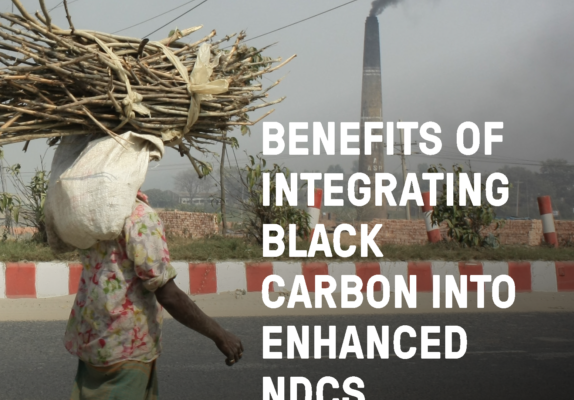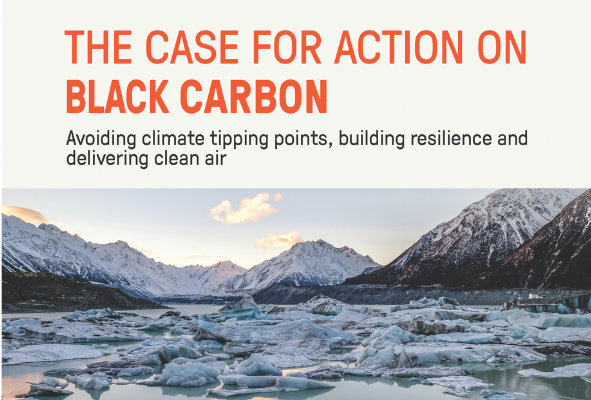World leaders have committed to tackling air pollution and climate change at the UN Summit of the Future in New York. In adopting the ‘Pact for the Future’, the UN General Assembly (UNGA) approved a historic blueprint of 56 actions to tackle the world’s largest problems.
While it’s welcome that the Pact commits to action on air pollution and reaffirms the agreements on climate expressed in the Paris Agreement, what’s needed now is concrete action to take from words to reality. As the UN Secretary General (UNSG) António Guterres stated, “We have unlocked the door. Now it is our common responsibility to walk through it. That demands not just agreement, but action. I challenge you to take that action.”
The importance of clean air recognised
Action on clean air is a catalyst for driving progress on Agenda 2030 and beyond. There are only five years remaining to achieve the Sustainable Development Goals (SDGs). With only 17% of the targets on-track, the Pact for the Future is an essential assertion that bold, united global action is needed to ensure a livable planet for current and future generations. The Pact gives hope that air pollution will be included in future multilateral agreements and declarations, calling to “accelerate efforts to address the pollution of air, land and soil, fresh water and the ocean.”
The Pact also recognises the vital importance of “substantially reducing non-carbon dioxide emissions globally” – which includes super pollutants such as black carbon, methane and tropospheric ozone. These overlooked air pollutants are responsible for up to 45% of global warming, harm human health, and need far more coordinated global action to reduce them.
Climate and clean air action need a just transition
When it comes to climate action, the Pact commits to “strengthen our actions to address climate change” and to “accelerate our efforts to restore, protect, conserve and sustainably use the environment.” The major driver of air pollution and climate change is the same – fossil fuel combustion. Of the 8 million annual deaths attributed to outdoor air pollution exposure, 5 million are attributed to fossil fuels. A fossil fuel phase out will help us achieve our air quality ambitions and save millions of lives.
At the Summit’s Opening, the UNSG stated to the assembly that we know the solution to the climate crisis is a “just phase-out of fossil fuels – and yet, emissions are still rising.” Any global agreement on our future must include a just and fair transition away from fossil fuels. This call was echoed in an open letter signed by over 150 eminent parents organised by Our Kids Climate and another letter by 77 Nobel Laureates and global leaders.
In the Pact for the Future, countries have reiterated the commitments of the 2015 Paris Agreement and 2023 Global Stocktake on “the need for deep, rapid and sustained reductions in greenhouse gas emissions in line with 1.5 degrees Celsius.” While it lists a set of measures that countries could take in their Nationally Determined Contributions (NDCs), with the next round expected in 2025, including “transitioning away from fossil fuels in energy systems”, it was not accompanied by an explicit commitment to a fair, fast and full phase out of fossil fuels. Future global agreements should make a tangible commitment to a healthy, fossil free future.
Climate justice in jeopardy
Civil society actors were heartened to see countries “commit to setting a deadline for eliminating fossil fuel subsidies” in the January ‘Zero Draft’ of the Pact. Unfortunately, this text has not been included in the final agreement.
The Pact urges countries to note the importance of “climate justice” but ignores that global fossil fuel subsidies have reached record numbers, further enabling climate, environmental and health crises that disproportionately affect low-and-middle-income countries. The same G7 that pledged to phaseout subsidies by 2025 reached record numbers in 2022, making their pledges unlikely to translate into reality. The $7 trillion in global annual fossil fuel subsidies should be seen as ‘inefficient’ once their costs to health and the environment are accounted for. We must redirect these vast sums to accelerate mitigation, clean air action and a just transition.
Words to actions
Countries now have an opportunity to show real leadership and action on climate and clean air in their upcoming NDCs. This includes recognising the importance of health and air quality and committing to ambitious reduction targets for super pollutants like black carbon, which impact human and planetary health, as well as actions to transition away from fossil fuels.
Clean Air Fund is working to support governments to include black carbon and air pollution in their NDCs, including a policy brief on the integrating black carbon into enhanced NDCs and contributing to the Climate and Clean Air Coalition’s (CCAC) guidance on NDCs. Integrating non-CO2 pollutants and air pollution into enhanced NDCs is an opportunity to show increased climate ambition, while cleaning the air and achieving local health and economic benefits.
Global leaders have acknowledged what’s at stake for this generation and the future. They have reiterated our right to a clean, healthy and sustainable environment, including clean air. The ‘triple planetary crises’ of climate change, air pollution and biodiversity loss do not have borders and no country can tackle them alone. It is heartening to see the global community come together in agreement on the need for action. These are not easy decisions, but the cost of inaction is not one that current or future generations will be able to pay.

